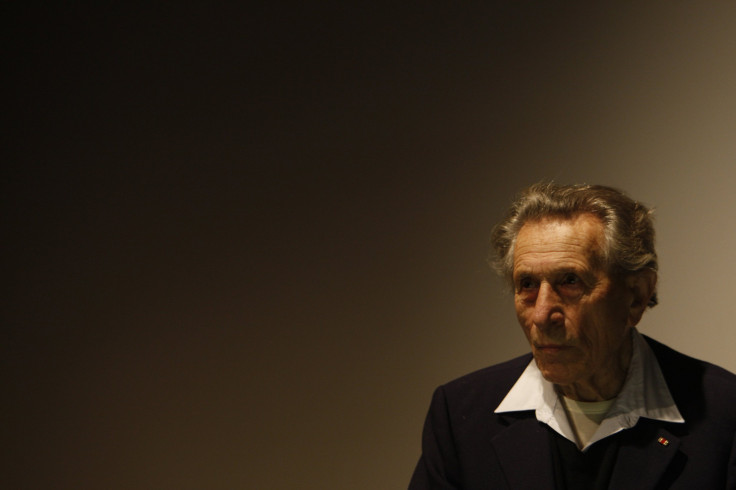Who Is Adolf Burger? Nazi Camp Survivor, Who Was Forced To Counterfeit Cash, Dies At 90 In Prague

Adolf Burger, the last concentration camp inmate forced by Nazis to produce fake pound notes, died Tuesday at the age of 90 in Prague, media reports said Thursday. Burger was part of an elaborate Nazi plan titled "Operation Bernhard" that sought to disrupt Britain’s economy by introducing millions of fake bank notes.
Burger escaped in the confusion when the Allies stormed Berlin in 1945. After the war, he settled in Prague where he reportedly headed a taxi company and also wrote several memoirs about his time as a Nazi prisoner.
Nazi Germany’s Operation Bernhard involved Luftwaffe airplanes dropping counterfeit notes, amounting to over 130 million pounds, over the United Kingdom. The plan was abandoned but it is considered one of the largest attempts at financial sabotage. The plan needed several craftsmen, bankers, at least one professional counterfeiter and book printers like Burger.
Burger, who hails from present-day Slovakia, was arrested by the Gestapo in 1942 for forging baptismal certificates for Jews to help save them persecution at the hands of Nazis. He was sent to Auschwitz with his first wife, Gisella, who was killed in the gas chamber.
He, however, was one of the estimated 140 other prisoners recruited for the Nazi’s ambitious Operation Bernhard. Burger, in an earlier interview, recalled the commandant of Auschwitz Rudolf Höss telling him of his fate.
“Herr Burger!” the commandant said. “We need people like you. You’ll be sent to Berlin. You will work as a free man and I wish you every success.”
He worked with other prisoners in Block 19 at Sachsenhausen, about 20 miles from Berlin. The prisoners were allowed more privileges than their counterparts at camps but it wasn’t the freedom Höss spoke of. They were given blankets, civilian clothing, cigarettes and extra food.
“I always said I was a dead man on holiday,” Burger told the historian Roger Morrison. “We never believed we would get out of there. But in the block we had everything — food, white sheets on the bed. Each one of us had his own bed; not like Birkenau, where six of us slept under a single lice-ridden blanket. Also, the SS guards never shouted at us. I used to play table tennis with them.”
“I didn’t think,” he said of his counterfeiting work. “I was in a concentration camp and I was ordered to do it. Print the money, so I printed it. If I hadn’t done it, they would have shot me. We had no ‘feelings.’”
One of Burger’s memoirs, “The Devil’s Workshop: A Memoir of the Nazi Counterfeiting Operation,” was translated to English and inspired an Austrian movie “The Counterfeiters,” which went on to win an Academy Award for Best Foreign Film.
“This is the high point of my life,” Burger said of the film. “Now more people will see this film and know that the Nazis were not just murderers, they were common criminals.”
© Copyright IBTimes 2025. All rights reserved.






















